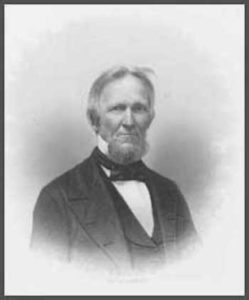
Beriah Green Jr.
*Beriah Green was born on this date 1795. He was a white-American reformer, abolitionist, temperance advocate, college professor, minister, He was "consumed totally by his abolitionist views". He was described as "cantankerous".
Beriah Green Jr. was born in Preston, Connecticut, son of Beriah Green and Elizabeth Smith. His father was a cabinet and chair maker. The family moved to Pawlet, Vermont in 1810, where he attended the Pawlet Academy. He graduated from Middlebury College in 1819, where he was valedictorian. In 1820 he became a minister at Andover Theological Seminary.
In 1832, he became head of the Oneida Institute. However, his religious beliefs did not agree with any denominational creed. Green led the secession of 59 church members from the Presbyterian church in Whitesboro over the issue of abolition of slavery. They formed the Congregational Church in Whitesboro in 1837. Green was pastor of that church from 1843 to 1867. In 1844, because of financial problems the Oneida Institute was sold to the Free Will Baptists.
After the Oneida Institute closed, Green became an active supporter of the Liberty Party. This was a third party that was completely devoted to the abolition of slavery. After the party failed to make an impact on American politics, Green became bitter with the democratic process. He did not like popular democracy and was in favor of an oligarchy or modified theocracy. Unlike many Liberty Party members, Green did not join the Free-Soil Party.
He was worried that abolition would not be part of the major party principles. After fellow abolitionists did not support his ideas about government, Green became resentful and did not travel far from Whitesboro. He supported his wife and children by farming and preaching to small groups of abolitionists. Former student Alexander Crummell described him as a "bluff, kind-hearted man," a "master-thinker". Beriah Green Jr. died on May 4, 1874 while giving a speech on temperance in Whitesboro.